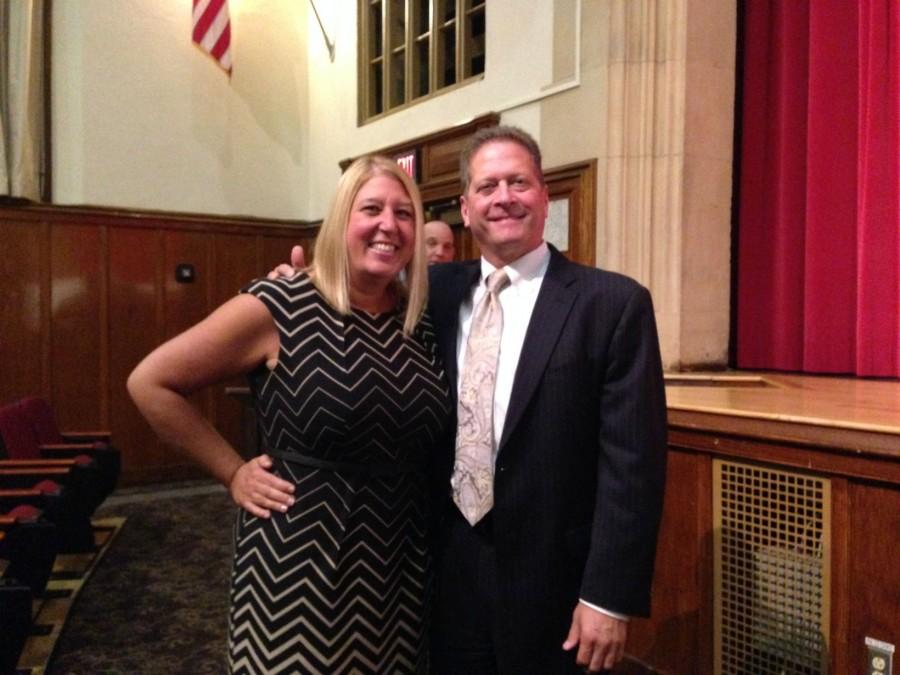Colleges talk students through the college admissions process
Photo Credit: Githmie Goonatilleke
Danielle Toglia, the Regional Director of Admission from George Washington University and Lawrence Wolff, the Director of Student Personnel Services.
October 28, 2015
Parents and students filled up the auditorium on Oct. 15 to hear representatives from seven different colleges talk about the college admissions process.
The seven colleges included George Washington University, University of Richmond, Bryant University, Furman University, SUNY Binghamton and Bergen Community College.
The topics discussed during the panel were the value of transcripts and grades, the selection early decision, if early decision changes your financial aid package, if athletes and students with musical and artistic talents are given any special attention and other questions from the audience.
Danielle Toglia, the Regional Director of Admissions, explained that at George Washington University the admissions board looks “at the rigor of the academic work, a grading scale, the trend in your grade and if you are leaning towards a certain major and how you supported that lean.” However Toglia believes that out of all of the criteria the most important “piece of the puzzle” is the student’s academic progress.
“We want you to challenge yourself but we also want you to challenge yourself appropriately. We want you to utilize your guidance counselor and discuss where you think you’ll do best,” Toglia said. This is relevant in the topic of taking hard courses like AP classes. Many of the representatives agreed that students need to find their balance in taking challenging courses. This also goes for extra-curricular activities because many students only do extracurricular activities that looks good on a resume. Instead students should doing activities that interest them but are also purposeful.
One controversial topic when talking about college admissions, is choosing to apply with early decision or early action. The difference between the two, is that with early decision the student is binded to the college you applied to and if they are accepted and they can not change their decision. With early action, students can apply to a college early and later if they get accepted they can decide if they want to go to that college.
Andy Morris, the Associates Director of SUNY Binghamton, said that the rate that students are applying for early decision has increased and that in general, early decision or early action are both good choices. Morris also compares early decision to marriage and early action to dating.
At SUNY Binghamton, Morris explains that if students are extremely close to getting accepted they can higher their chances even more by completing a special talents application for music, theatre, art and others. After completing the application, professors from SUNY Binghamton review the cases and give recommendations to students who they feel have are more talented in a subject.
“The college admissions process is about self advocacy for students. We want students to take responsibility and ownership of the process and understand the process better,” said Toglia on what she feels strongly about the college admissions process.
When asked about who stands out in terms of application, Andy Morris said, “the holy trinity of applications is ‘did you take tough classes, how well did you do in those classes and your standardized test scores,” Morris said. Morris also believes that students should take both the SAT and the ACT because “some students do better on one than the other.”
Overall it’s important to remember that college admission boards look at students as a whole and not just their SAT scores but as Anthony Grant, the representative from University of Richmond, said, “the college admission process is yours to own.”




